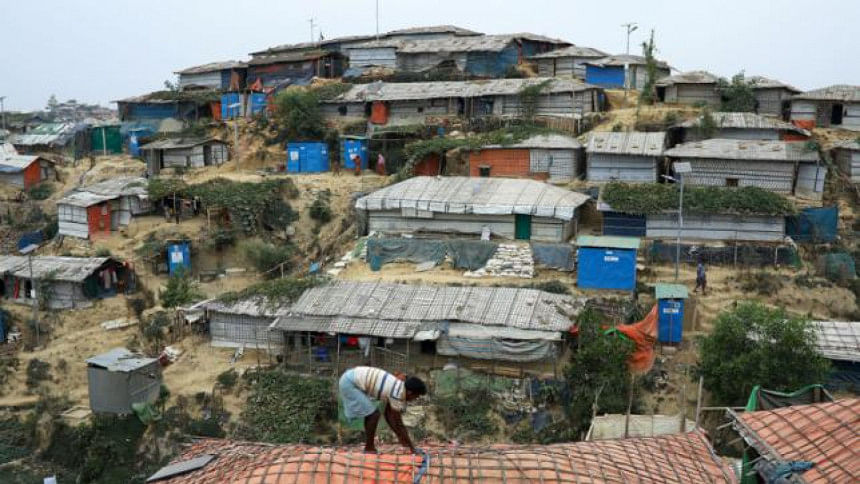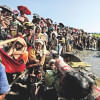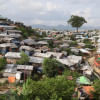11 hurt, 273 shelters damaged in rain at Cox’s Bazar Rohingya camp

At least 11 Rohingyas were injured and 273 shelters were destroyed in three days of continuous rain in the Rohingya settlements at Cox's Bazar, said UN Refugee Agency.
More than 900,000 Rohingya refugees, who escaped persecution in Myanmar's Rakhine state since August 2017, are living in the settlements.
An estimated 350mm of rain fell in 72 hours from Monday and more heavy downpours are expected throughout next week, with four months of the monsoon season to go. According to preliminary reports, there have been 26 landslides, UNHCR said.
Refugee volunteers trained by UNHCR and partners worked throughout the night on Wednesday in heavy rain to help families in urgent need, UNHCR spokesperson Charlie Yaxley said at today's press briefing at the Palais des Nations in Geneva.
"In some cases, this involved rescuing refugees from shelters destroyed by landslides. We have temporarily relocated 2,137 people, either because their shelters suffered substantial damage or as a precaution."
"Our network of Emergency Response Teams has been mobilised to identify the needs of the most vulnerable and prioritise them for assistance. As an immediate response, pre-positioned emergency supplies are being distributed to help rebuild, repair and strengthen damaged shelters," Charlie Yaxley said.
In support of the humanitarian response led by the Bangladeshi authorities, UNHCR and partners, including WFP and IOM, made preparedness for the monsoon season a priority, including building retaining structures on hillsides, installing drainage, and building roads and bridges. Reservoirs have been also constructed to hold monsoon rains and stabilise water supplies.
"We remain on high alert, ready to deploy additional Emergency Response Teams to support our network of refugee volunteers and partners as needed," he also said.
To date, the 2019 Joint Response Plan (JRP) for the Rohingya humanitarian crisis in Bangladesh has received only a third (US$301 million) of the US$920 million that is needed.

 For all latest news, follow The Daily Star's Google News channel.
For all latest news, follow The Daily Star's Google News channel. 








Comments